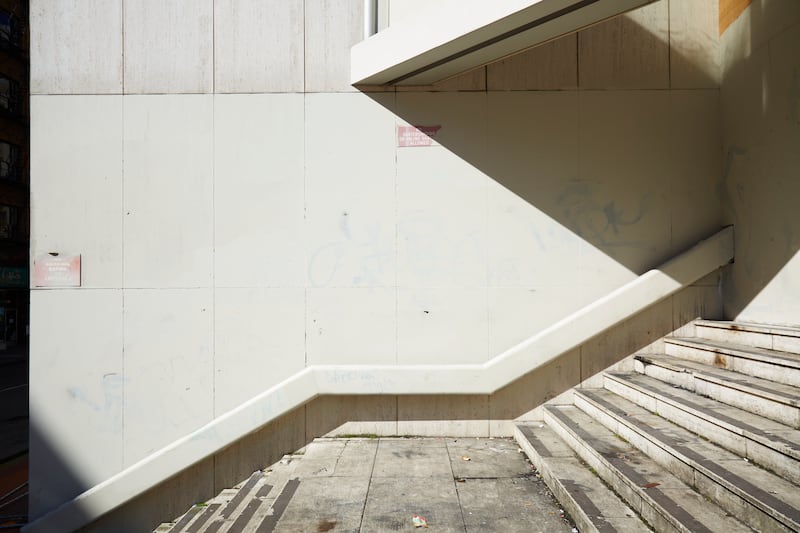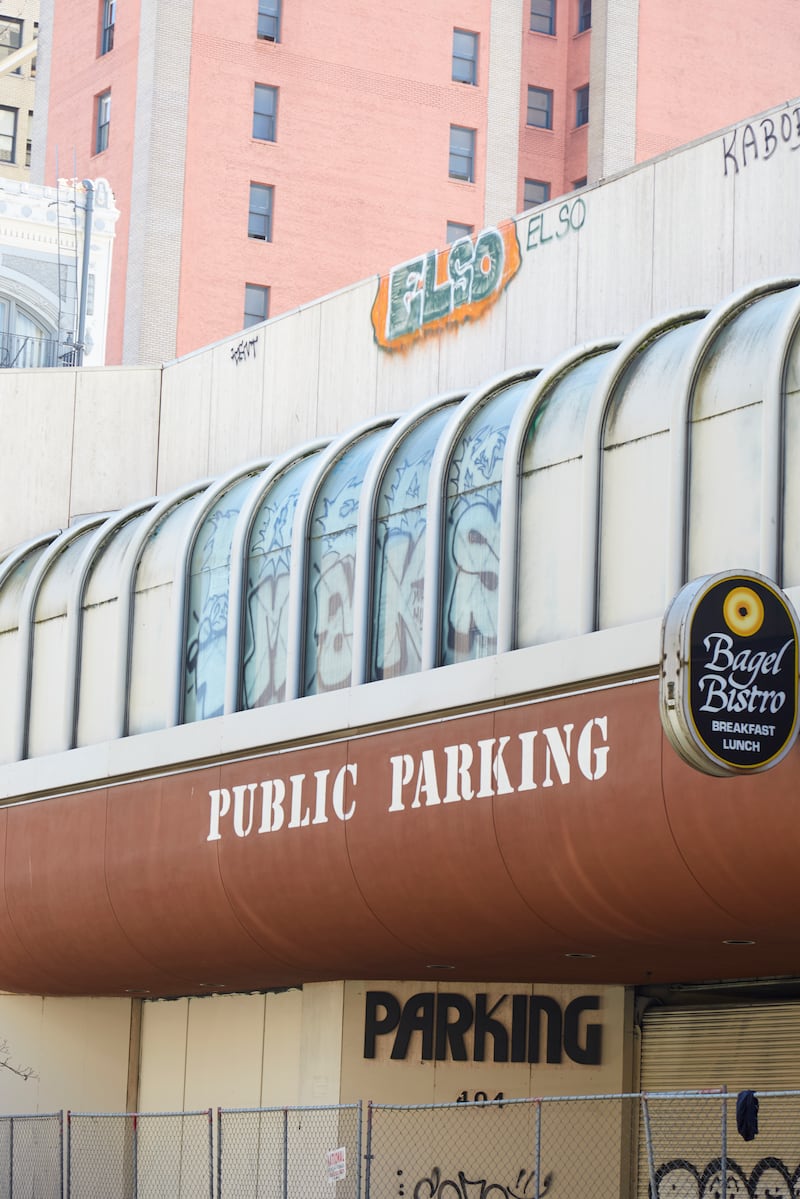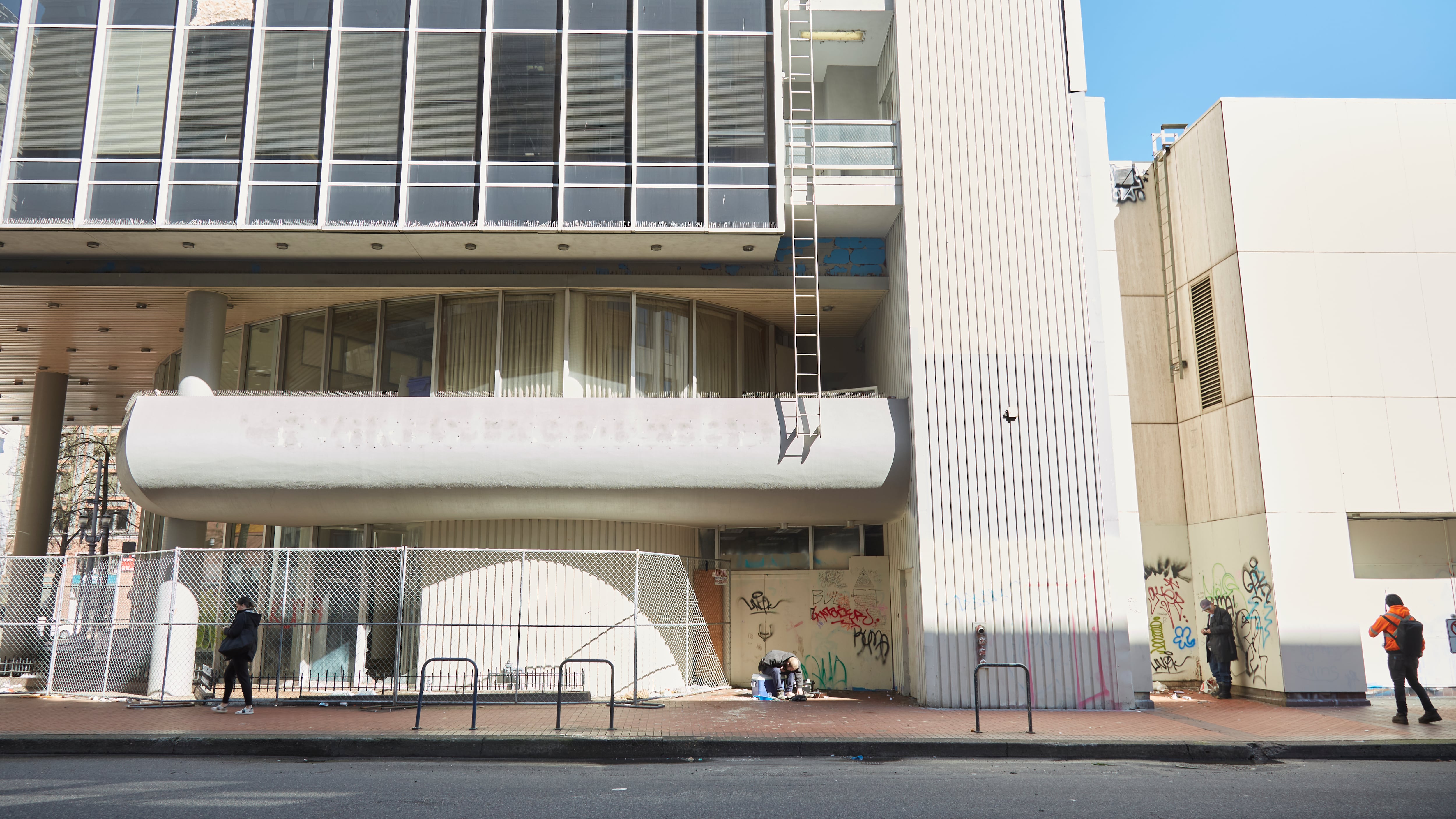As WW reported last week, a block of commercial properties in downtown Portland owned by a prominent real estate family is now occupied by an open-air drug market.
The Portland Police Bureau has been doing frequent drug missions in the area, and officers have turned to Instagram to document their finds: a sea of blue fentanyl pills, white powders, guns and ammunition.
But who are the police arresting, and what brought the dealers to this single downtown Portland block?
For the past week, WW has pored over court records looking for clues. The results are not conclusive, although there are hints that Portland’s illicit fentanyl trade follows a familiar pattern.
In many of these cases, culled from recent state and federal court records, police arrested people living on the streets, selling drugs to fuel their addiction. But in others, police appear to have caught more sophisticated dealers, offering a window into how business is conducted at the drug market.
Most of the fentanyl trafficked in the United States is believed to be supplied by Latin American cartels. And, as Sam Quinones outlined in his 2015 book, Dreamland, Mexican dealers transitioned some time in the past several decades to a “pizza-delivery” model for black tar heroin. They handed out phone numbers to addicted users, ran call centers, hired low-wage drivers, and delivered heroin to street corners in dozens of major cities in the United States.
Now, that strategy appears to have been replicated with fentanyl. In one case, police caught a Honduran man, recently arrived in the U.S., handing out strips of paper with contact information.
Here are some recent prosecutions of downtown drug dealers. The arrests were concentrated in one city block, near the corner of Southwest 4th Avenue and Washington Street.
The probable cause affidavits and federal criminal complaints do not paint a clear picture of the suppliers who are flooding Portland with fentanyl. But they do offer vivid portraits of the street-level dealers who moved into Washington Center this winter, and suggest that these men—most homeless, some Honduran nationals—are the lowest rung exploited by a more sophisticated operation.

Who: Olvin Pabricio Diaz
Where: Southwest Harvey Milk Street and 3rd Avenue
Arrested: Feb. 8
Allegations: Diaz was pulled over by police while riding an electric scooter. In his backpack was $551, a scale, several baggies of fentanyl, and several hundred blue pills. He said he’d arrived from San Francisco five days ago and was being supplied by two men in Gresham.
***
Who: Cesar Salgado-Varela
Where: Southwest Washington Street and 4th Avenue
Arrested: Feb. 20
Allegations: Police watched Salgado-Varela make several hand-to-hand transactions before arresting him and finding 1,160 pills and 20 grams of powdered fentanyl. He had two cellphones and slips of paper with contact information that police believed he was handing out to buyers. When interviewed by a Spanish-speaking interpreter, he said he arrived in Portland from Honduras three months ago and was camping near Southwest 1st Avenue and Morrison Street. He said he had three children back at home.
***
Who: Yexon Efrain Mendez-Zuniga
Where: Southwest Washington Street and 4th Avenue
When: Feb. 22
Allegations: Police watched 19-year-old Mendez-Zuniga speaking into a handheld radio while handing out drugs. He fled police and was chased down near Director Park, where he handed over to officers 250 fentanyl pills and a loaded handgun, which he said he’d been given, on loan, from “El Gato.” The pills were supplied by a man named “Dylan,” whom Mendez-Zuniga spoke to over the radio and who would sell him pills in bulk each morning for $1 apiece. Mendez-Zuniga marked them up to $2 and sold them to passersby, he says. Mendez-Zuniga told investigators that he was a citizen of Honduras and had snuck across the border in Arizona in May 2021. He claimed he’d just begun dealing the week before because it paid more than his prior job as a roofer.

Who: Brian Springer
Where: Southwest Harvey Milk Street and 5th Avenue
Arrested: Feb. 22
Allegations: Springer was caught handing out blue pills on the corner. He told an interviewer he was on disability and had been living in Portland 44 years. When arrested, he had 22 pills in his pockets.
***
Who: Reinel Raudales-Escalante and Edward Valentin
Where: Southwest Harvey Milk Street and 4th Avenue
Arrested: Feb. 24
Allegations: When stopped by police, Valentin said he had just “reupped” his supply from Raudales-Escalante. The two of them had $1,000 in cash and nearly 100 pills.
***
Who: Jose Luis Vazquez-Cabello
Where: Southwest Oak Street and 3rd Avenue
Arrested: March 10
Allegations: Vazquez-Cabello told police he’d only been dealing for three days and was trying to save up for an apartment. He had $207 in cash and a switchblade. He later told an interviewer that he’d been homeless in Portland for two years.
***
Who: Francisco Javiere Stevens
Where: Southwest Washington Street and 4th Avenue
Arrested: March 14
Allegations: Stevens had $1,270 in cash on him when he was arrested, as well as a wallet with someone else’s Honduran identification card, which he told police he’d found empty on the ground. He said he’d resorted to dealing and shoplifting to fund his fentanyl addiction. He’d been couch-surfing for a year and half in Hillsboro following a recent relapse.
***
Who: Nicholas Murphy
Where: Southwest Oak Street and 4th Avenue
Arrested: March 17
Allegations: Murphy had $344 in small bills and three plastic containers in his pockets, one with around 50 fentanyl pills in it. He told police he was homeless, using fentanyl, and selling pills to make money to support himself.
***
Who: Luis Daniel Santiago
Where: Southwest 4th Avenue
Arrested: March 22
Allegations: Santiago was handing out baggies of white powder in exchange for cash. He said he’d purchased two bags of fentanyl earlier that day for $1,100. He said he’d had to sell some of it to “buy Plan B for his girl.”

